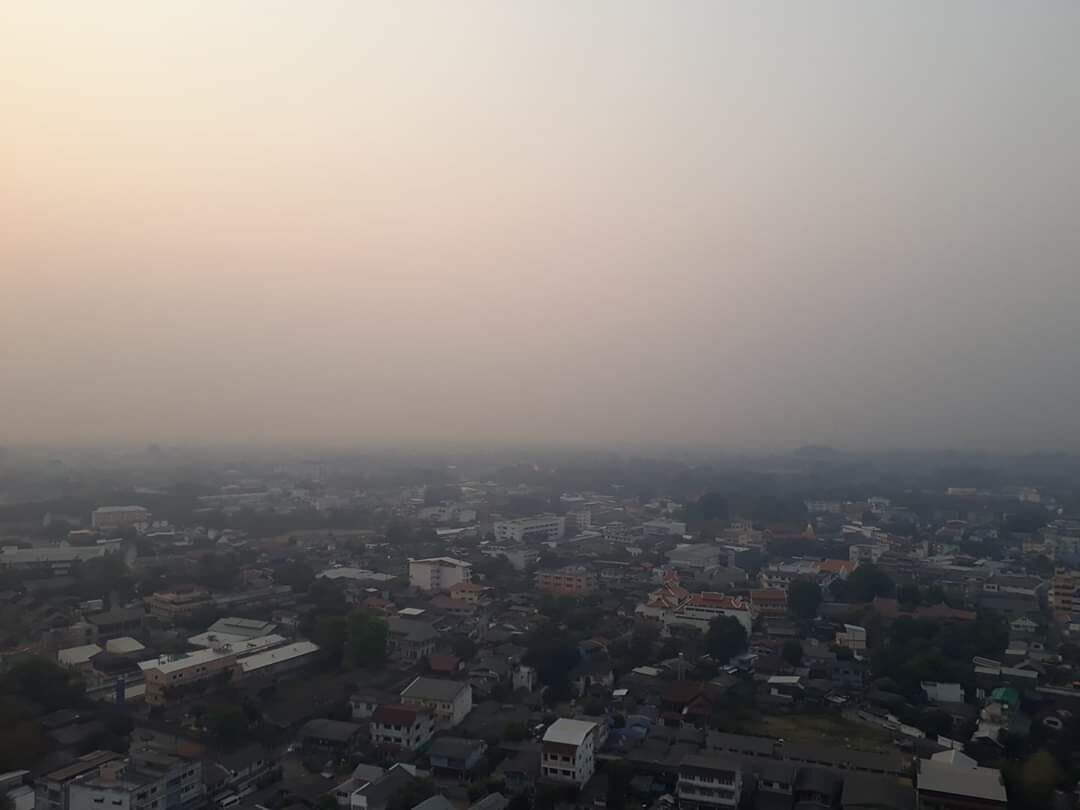Chiang Mai’s haze crisis: Health and tourism at risk

The ongoing severe haze pollution in Chiang Mai has not only increased health risks for the inhabitants but has also negatively impacted its tourism industry. Affected parties are urging the government to implement long-term measures to address the issue, including the passage of a ‘clean air’ bill currently awaiting deliberation in parliament.
The PM2.5 pollution affecting the upper northern provinces of Thailand, including Chiang Mai, has led to residents hoping that the government formed after the May 14 general election will address the problem, primarily caused by slash-and-burn farming and man-made forest fires.
A report from the Geo-Informatics and Space Technology Development Agency (Gistda) detailed that between January and April, Myanmar recorded the highest number of hotspots in the region with 275,000, followed by Laos with 220,000, Thailand with 154,000, and Cambodia with 100,700. Chiang Mai recorded the highest number in the upper North with 12,000 hotspots during this four-month period, resulting in over 150,000 rai of land being destroyed by fire.
Dr Rangsarit Kanchanawanich, a cardiologist at Chiang Mai University’s faculty of medicine, warns that Chiang Mai residents face an increased risk of epidermal growth factor receptor mutation, leading to lung cancer. In addition, they also face higher risks of heart diseases and strokes, potentially shortening their lifespan by 4-5 years.
Dr Rangsarit said…
“We want the government to show the political will to save millions of lives.”
Despite the government declaring haze pollution a national priority on February 12 and implementing measures such as a ban on burning, the haze crisis has yet to improve. The pollution levels have exceeded standard safety limits for more than 70 days, resulting in numerous health issues, including skin diseases, chronic obstructive pulmonary disease, eye inflammation, strokes, and sore throats, affecting between 30,000-40,000 patients each year.
Chatchawal Thongdeelert, president of the Chiang Mai Breath Council, acknowledges that while collaboration between agencies to tackle the haze problem has improved, there remains a gap in understanding between local communities dependent on forests for their livelihoods and the government’s enforcement of the law. The problem has been further compounded by transboundary haze from neighbouring countries and the need for an all-year-round concerted effort to tackle pollution.
La-iad Bungsrithong, an advisor to the Thai Hotels Association’s Upper Northern Chapter, said the serious haze pollution in Chiang Mai is affecting the local economy, particularly the hotel business. Initially, it was estimated that 65% of over 50,000 hotel rooms in Chiang Mai would be booked during Songkran, but only 40% were reserved, mostly by Thai tourists who cancelled plans due to the PM2.5 problem. La-iad said…
“April is the low-season period for tourism in Chiang Mai and other northern provinces. Songkran is the only main event that can attract tourists, but the PM2.5 problem is a hindrance, causing Chiang Mai to lose income.”
Many hotels and other types of accommodations have had to install air purifiers to protect customers from the impact of PM2.5, adding to their operational costs.
Suladda Sarutilavan, director of the Tourism Authority of Thailand’s Chiang Mai office, revealed that despite joint efforts between state agencies and the private sector to stimulate tourism, a 30% drop in tourists was recorded during the Songkran period due to air pollution. She said that between April 13-16, only 41,254 tourists arrived at Chiang Mai airport, with the majority being domestic travellers.
As the haze pollution takes a toll on health and tourism in Chiang Mai, concerned parties are calling for the swift passage of the clean air bill in parliament to help mitigate the problem. The proposed legislation aims to provide more robust measures and policies to ensure the air quality in Thailand remains at acceptable levels, benefiting not just the residents of Chiang Mai but also the entire country.
Latest Thailand News
Follow The Thaiger on Google News:


























